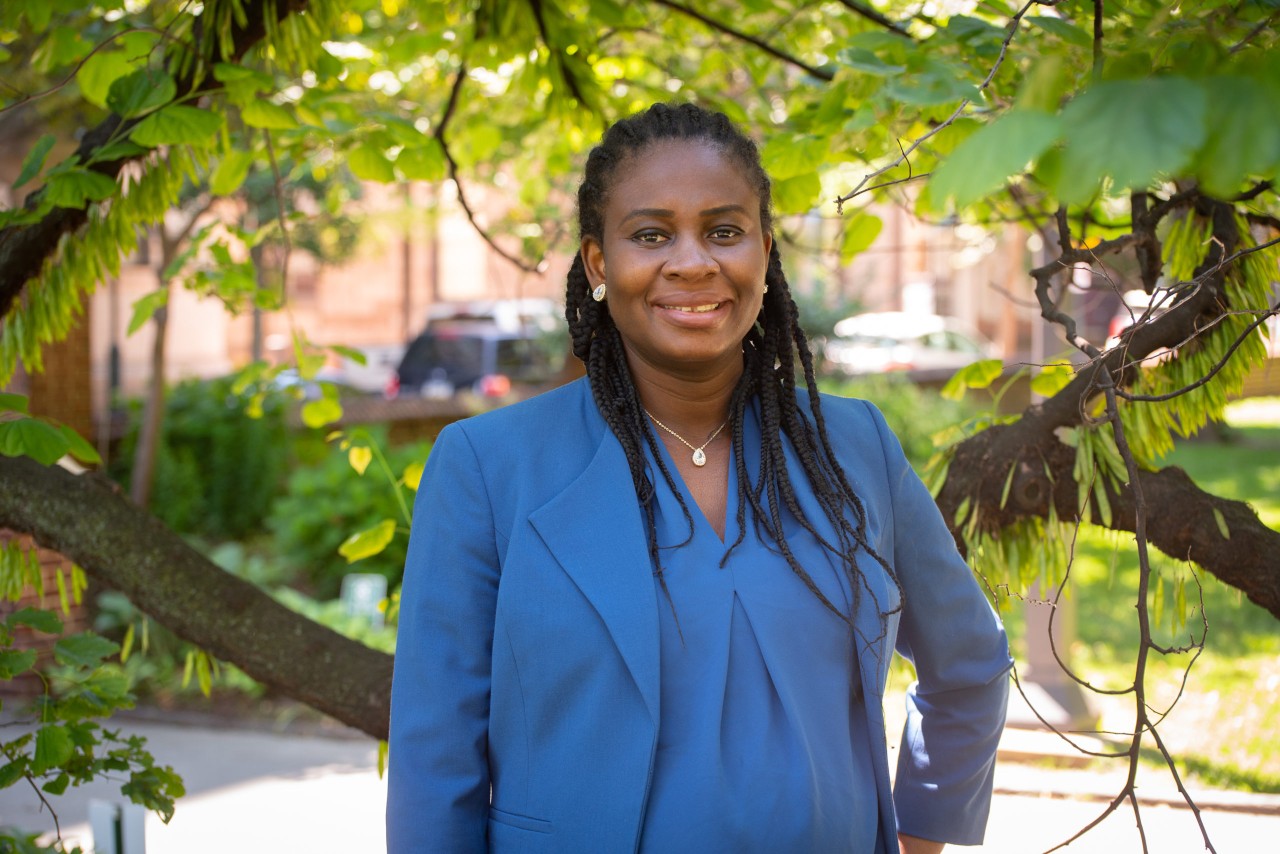
Pharmacy Students Pivot to Today’s Health Crises, Including the Pandemic and Opioids
They now administer COVID vaccines and encourage patients to return extra doses of opioids.
When the pandemic hit in 2020, many Jefferson programs made adjustments to allow students to aid in relief efforts. Among them was the Jefferson College of Pharmacy (JCP) doctor of pharmacy program.
Only a licensed pharmacist could administer vaccinations before the pandemic. However, regulators soon realized the work required to vaccinate the public against COVID-19 and allowed pharmacy students to vaccinate patients of all ages.
As a result of this update, JCP began immunization training during the program’s second year instead of the third. This change would allow more students to administer vaccines to more frontline workers and patients.
“Nationwide, pharmacists and student pharmacists have administered more than 70% of all COVID vaccinations to date,” says Dr. Rebecca Finley, JCP dean. “As the first COVID vaccines became available, there was an acute need for more healthcare professionals to administer them. Because pharmacies and pharmacists are so accessible, it was acknowledged that pharmacy professionals would need to assume a major role in vaccinating the U.S. public.”
Jefferson pharmacy resident Madison Leap was one of the many students trained to administer vaccinations early in her academic career. She participated in vaccine clinics across the city as an advanced pharmacy practice experience (APPE) student. Leap moved from student to a first-year pharmacy resident and already has given flu vaccines to employees at the Urban Outfitters headquarters and Thomas Jefferson University Hospital. She’s also participating in the bivalent COVID-19 vaccine clinic for Jefferson employees.
“During my time in the program, I worked in a pharmacy that didn’t participate in vaccinations,” Leap says. “Without the training that JCP provided, I would have missed out on the valuable experience I got during my APPE rotations.”
In addition to administering vaccinations during the pandemic, JCP students received training to administer COVID-19 tests and treat positive patients, allowing care to begin immediately for those patients. “Timing is so important when it comes to treatment for COVID-19,” Dr. Finley says. “Training our students to test and treat could make a huge difference on how well a patient responds to COVID medication.”
Along with pandemic relief efforts, students are trained in medication management, Dr. Finley says. Many patients see several providers who prescribe multiple medications.
“Their medication regimens are often complex, and it’s important to ensure that the intended therapeutic effects are achieved and that medication-related problems are prevented,” she says.
JCP students work with patients to look at all their prescribed medications and make sure they don’t take contraindicated medications and, where necessary, adjust doses.
“Medication therapy management services provided by pharmacists have been well-documented to improve patients’ response to therapy, avoid preventable adverse effects and ensure that patients understand the appropriate use of their medication regimens and take them correctly,” Dr. Finley says.
Pharmacy students also have assumed a role in the opioid crisis. They help train family members of those suffering from substance use disorder how to use Narcan and they visit elementary schools to educate children on drug abuse.
Plus, students recently began work on a drug take-back program. Abuse often starts in the home, so student pharmacists aim to cut down on unused medications after they’re no longer medically necessary, Dr. Finley says. They call patients who have been prescribed a one-time course of opioids (i.e., an orthopedic patient) to return extra doses. There’s also a locked bin in the apothecary at Thomas Jefferson University Hospital where students and the public can dispose of these medications.
“JCP student pharmacists are well aware of the impact that the opioid epidemic has had on our community,” Dr. Finley says. “They learn strategies to identify individuals at risk for substance abuse disorders and interventions to assist those individuals to identify treatment services.”
One of the pharmacy students spearheading the initiative, Olivia Zdradzinski, worked with a small group of her classmates to draft a proposal for the student-led program that actively promotes safe opioid disposal.
“Unfortunately, the opioid epidemic continues to impact our neighborhoods and affect our patients,” Zdradzinski says. “I firmly believe that student pharmacists can play an active role in helping to alleviate the opioid crisis by using their knowledge and skills to deliver education, promote safe use and urge proper disposal.”



